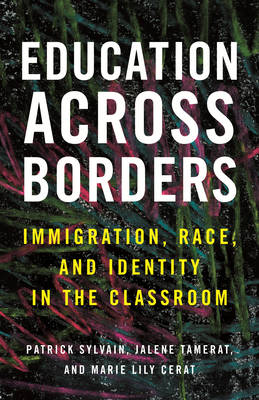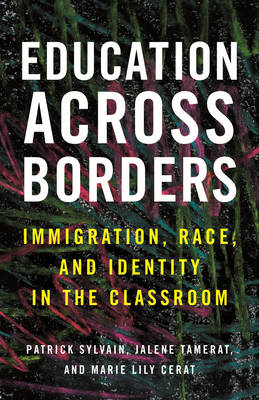
Wil je zeker zijn dat je cadeautjes op tijd onder de kerstboom liggen? Onze winkels ontvangen jou met open armen. Nu met extra openingsuren op zondag!
- Afhalen na 1 uur in een winkel met voorraad
- Gratis thuislevering in België vanaf € 30
- Ruim aanbod met 7 miljoen producten
Wil je zeker zijn dat je cadeautjes op tijd onder de kerstboom liggen? Onze winkels ontvangen jou met open armen. Nu met extra openingsuren op zondag!
- Afhalen na 1 uur in een winkel met voorraad
- Gratis thuislevering in België vanaf € 30
- Ruim aanbod met 7 miljoen producten
Zoeken
Education Across Borders
Immigration, Race, and Identity in the Classroom
Patrick Sylvain, Jalene Tamerat, Marie Lily Cerat
€ 22,45
+ 44 punten
Omschrijving
A critical resource for K-12 educators that serve BIPOC and first-generation students that explores why inclusive and culturally relevant pedagogy is necessary to ensure the success of their students The practices and values in the US educational system position linguistically, culturally, and socioeconomically diverse children and families at a disadvantage. BIPOC dropout rates and levels of stress and anxiety have linked with non-inclusive school environments. In this collection, 3 educators tell and will draw on their experiences as immigrants and educators to address racial inequity in the classroom and provide a thorough analysis of different strategies that create an inclusive classroom environment. White educators that serve BIPOC students will benefit from these reflections on incorporating culturally relevant pedagogies that value the diverse experiences of their students. With a focus on Haitian and Dominican students in the US, the authors will reveal the challenges that immigrant and first-generation students face. They'll also offer insights about topics such as: - How do language policies and social justice intersect?
- How can educators use culturally relevant teaching and community funds of knowledge to enrich school curriculum?
- How can educators center the needs of the student within the classroom?
- How can educators support Haitian Creole-speaking students?
- How can educators use culturally relevant teaching and community funds of knowledge to enrich school curriculum?
- How can educators center the needs of the student within the classroom?
- How can educators support Haitian Creole-speaking students?
Specificaties
Betrokkenen
- Auteur(s):
- Uitgeverij:
Inhoud
- Aantal bladzijden:
- 144
- Taal:
- Engels
- Reeks:
Eigenschappen
- Productcode (EAN):
- 9780807052808
- Verschijningsdatum:
- 22/02/2022
- Uitvoering:
- Paperback
- Formaat:
- Trade paperback (VS)
- Afmetingen:
- 140 mm x 213 mm
- Gewicht:
- 181 g

Alleen bij Standaard Boekhandel
+ 44 punten op je klantenkaart van Standaard Boekhandel
Beoordelingen
We publiceren alleen reviews die voldoen aan de voorwaarden voor reviews. Bekijk onze voorwaarden voor reviews.











